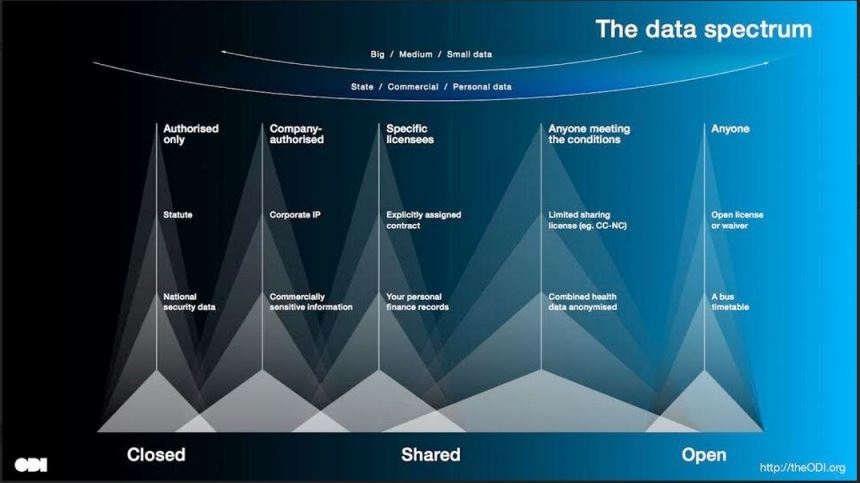
|
October 2015 |
[an error occurred while processing this directive] |
|
For Gourmet Tenant Experiences Mix Sensor Data and an Open Tech Stack |
Simon
Troup, Head of Data Services OpenSensors.io |
| Articles |
| Interviews |
| Releases |
| New Products |
| Reviews |
| [an error occurred while processing this directive] |
| Editorial |
| Events |
| Sponsors |
| Site Search |
| Newsletters |
| [an error occurred while processing this directive] |
| Archives |
| Past Issues |
| Home |
| Editors |
| eDucation |
| [an error occurred while processing this directive] |
| Training |
| Links |
| Software |
| Subscribe |
| [an error occurred while processing this directive] |
Expect the early
adopters of ‘enchanted’ buildings to be our employers. The World Green
Building Council estimates that we spend 10% of our costs on
facilities
management and 90% on executing our business. You don’t have to be an
accountant to realise a 1% improvement in productivity trumps a 1%
saving in facilities costs by 9 to 1! So how might smart buildings
deliver productivity and improved user experience (UX)?
Great UX should be pain free. ”Don’t make me
think,” says Steve Krug.
Whilst smart phones offer a means of logging in to a workplace, it’s a
bind to install the app, to login, to connect. Then privacy and
indoor location services are a challenge. IoT tech such as smart-city
open-data sensors, beacons, noise and air quality sensors, coupled with
responsible anonymisation, can deliver on productivity because improved
building and personal wellness simply means we get more done. But how
might this work?
The Open Data Institute
holds that data exists on a spectrum, which ranges from closed to
shared to open. With this graphic, ODI also makes the point that
—whether big, medium or small, whether state, commercial or
personal—the important thing about data is how it is licensed.
Aarron
Walter said “UX Designers shooting for usable is like a chef
shooting for edible.” As techies we can apply these ideas to workplace
interactions. Take a large office space: I arrive from out of town for
a meeting with my project team. I register, head off to the flexible
space and grab a desk. Perhaps wasting some time trying to find my
guys. Each of the team then arrive. Some may co-locate, others
disperse. There’s no convenient breakout space; the collaboration is
diluted, and we’re disturbing others.This is the typical ‘edible’
tenant experience, not a delightful meal.
 The missing ingredient that is rendering even such ‘techie’ tenants
powerless to demand gourmet
is the lack of an inexpensive, robust,
secure and open tech stack. But tech is moving fast. Expect new digital
services enabled by advances in IoT hardware and data software to shake
down the workplace industry. Property management organisations that are
ready to invest and experiment will move ahead. They’ll develop an
‘edge’ that will define their branding for years to come with a menu of
services that include:
The missing ingredient that is rendering even such ‘techie’ tenants
powerless to demand gourmet
is the lack of an inexpensive, robust,
secure and open tech stack. But tech is moving fast. Expect new digital
services enabled by advances in IoT hardware and data software to shake
down the workplace industry. Property management organisations that are
ready to invest and experiment will move ahead. They’ll develop an
‘edge’ that will define their branding for years to come with a menu of
services that include:
[an error occurred while processing this directive]
Data science is behind each of the above services. Each addresses
a specific need by wrangling data sets into an ordered store.
Opensensors.io
is one company launched to provide an inexpensive,
robust, secure and open tech stack to do such wrangling. We add
further value through real time dashboarding for health and safety or
real time productivity management. Furthermore, once data is captured
we can apply machine-learning to gain a deeper understanding of the
interactions of our human resources and physical assets through A/B
testing and other data science.
Unlocking great UX in buildings boils down to data; capturing it,
wrangling it, applying science and iterating to make things better.
First we must gather the data from the systems in place (see First
‘Things’ First) whilst supplementing from new devices such as air
quality, occupancy through sensors or beacons. Having provided a robust
data fabric tenants need to become active rather than passive, agile
rather than rigid in their approach to managing their assets. IoT
devices and data services will deliver the edge needed to serve up
best-of-breed user experiences that tenants will highly value.
About the Author
Simon
Troup is Head of Data Services for OpenSensors.io, London, United
Kingdom. He and the whole team at OpenSensors are focused on lowering
the cost and barriers-to-entry for the Internet of Things. They are
building an IoT ingestion engine capable of processing millions of
messages per second for users seeking to create smart and responsive
environments.
We are incubated in the Open Data Institute and are passionate about
building cities and environments of the future.
[an error occurred while processing this directive]
[Click Banner To Learn More]
[Home Page] [The Automator] [About] [Subscribe ] [Contact Us]